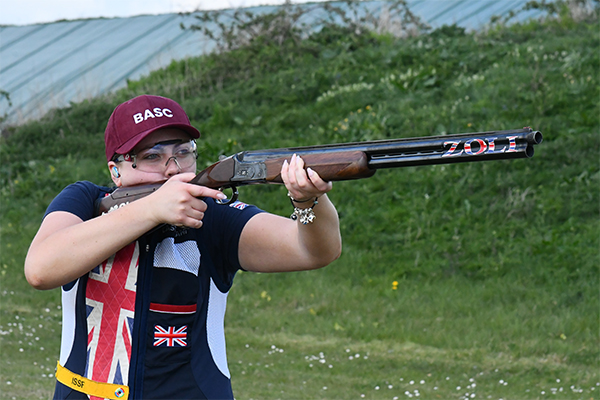
BASC-sponsored shooters shine on the international stage
Two BASC-sponsored target shooting athletes have been selected for the British Shooting World Class Programme.
Get information on the legal shooting season for mammals and birds in the UK.
Apply for funding for your project or make a donation today
Comprehensive information and advice from our specialist firearms team.
Everything you need to know about shotgun, rifle and airgun ammunition.
Find our up-to-date information, advice and links to government resources.
Everything you need to know on firearms law and licensing.
All the latest news and advice on general licences and how they affect you.
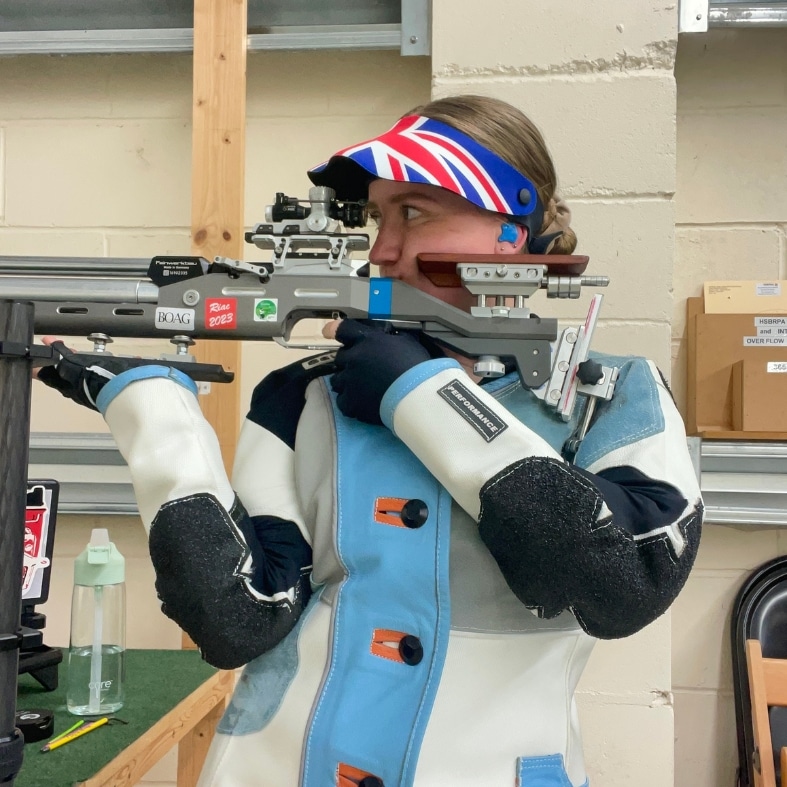

Courtney Palmer-Jones, 24, is a BASC-sponsored rifle shooter. But shortly after becoming British Women’s Air Rifle champion, she suffered a crisis of confidence. Here she describes how she took a step back from competition to rebuild herself.
It’s easy to look at high-level athletes and assume all their training is positive, every shot is near the middle and each competition goes better than the last. However, the reality of competitive sport can often be very different.
I’ve been competing in 10m Air Rifle for more than four years and was awarded a BASC Legacy Sponsorship for 2025.
Leading up to this, in the 2023/24 season, I won a bronze in the Mixed Pairs at the Welsh Air Rifle Championships. I travelled to Luxembourg to compete and I won the Women’s British Air Rifle Championship. It seemed as if I was on top of my game.
Despite all the success I’d experienced, my confidence was plummeting. The 2024/25 season began and I opened with 2 DNFs (did not finish). Walking away from the competition, I had to make a crushing admission to myself and my coaches. For the first time in my sporting career, I wasn’t enjoying shooting – either in or out of competition.
I was ashamed and embarrassed that this sport I’ve put so much of my time and energy into was something I couldn’t even bear to be around. Making a tough call, I decided to step away. I took the remainder of 2024 off and withdrew from all competitions for the season.
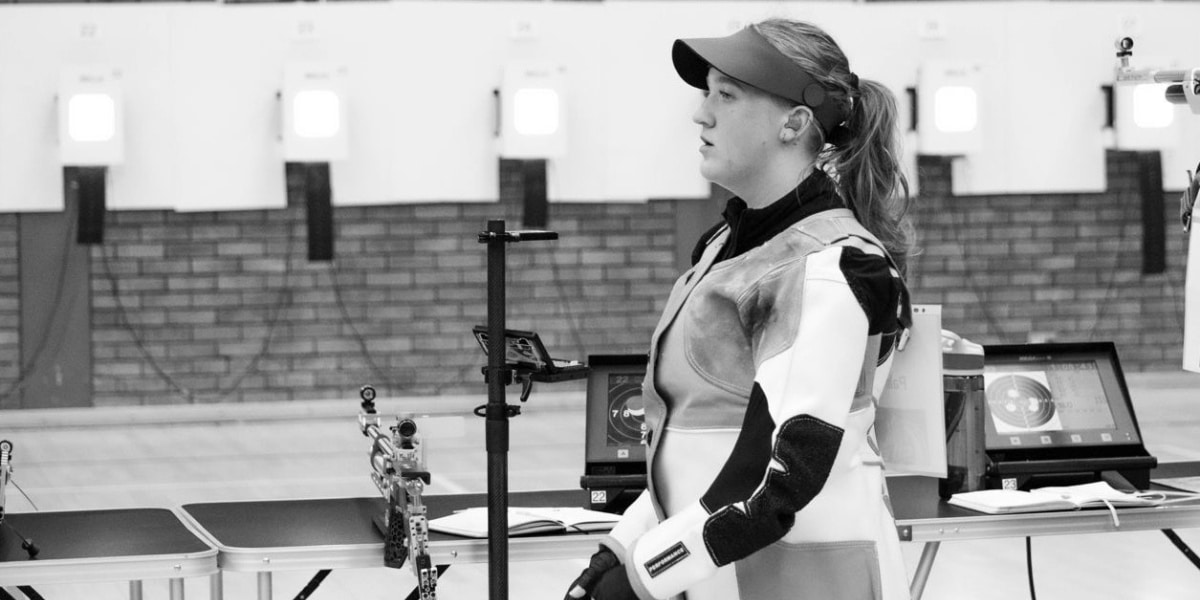
My sponsorship with BASC kicked off in January 2025 and I couldn’t even shoot ten consecutive shots. How was I meant to show them they had made the right choice? How could I show people what I was capable of? And how could I prove to myself that pushing through the gruelling training sessions would all be worth it?
My training started from the ground up. With a competition in Gibraltar booked in for May, we had a hard few months ahead on the range. Expectations were dialled back to zero. My coach and I worked one-on-one to re-establish the basics and rebuild the core elements that would restore my technical confidence.
It was extremely hard at first. I wasn’t capable of shooting more than five to ten quality shots in a row. As a result, we adapted our training to be more flexible. It didn’t give me a ‘get out of jail free’ card, but we ran on the basis that if it was just one of those days. We would call the session early to prevent building in bad habits or further knocking my confidence.
“For all the hard times that competitive sport brings, it doesn’t outweigh the experiences, the development and the joy. As an athlete, I wouldn’t change that for the world.”
On the remaining days, training consisted of short, sharp bursts with high intensity. We’d run drills on specific elements of my process and review SCATT data. We’d test my limits to see how long I could remain in focus. It all felt like I was going ten rounds with Mike Tyson!
When I wasn’t physically on the firing point, we discussed matters in my personal life and my mental health. Things that would affect my psychological behaviours on the range – shooting is a mental sport, after all.
This is where having the one-to-one support was key. I could speak openly with someone I trust about what was really happening on the inside. I could explain what the demons on my shoulder were saying to me, how it truly felt like I wouldn’t recover. But each conversation got easier and I was feeling lighter after finally expressing how I’d been feeling.
Working solely on basic techniques and stamina, while addressing the psychological barriers, we began to make significant progress. It felt like each step was taken through jelly, but it was progress nonetheless. For the first time in more than six months, I was enjoying training again. I’d leave sessions with a smile on my face. Finally, I was stacking shots on top of each other; I was better technically than I had been before.
Just two weeks before I competed in Gibraltar, I shot 60 consecutive shots for the first time in more than eight months. I was back exactly where I had been the previous year. Gibraltar rolled around and I shot an international PB in my first match. That’s despite accidentally shooting a 4 (there’s a first time for everything), and my other matches went just as well. My coach and I were ecstatic with the outcome after the gruelling work we had been through.
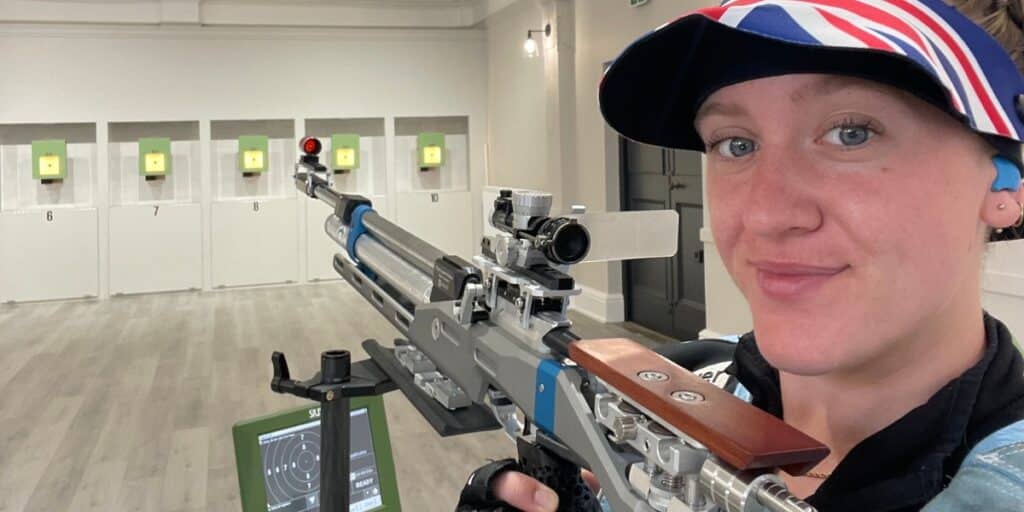
There are sides to sport that nobody else sees. Everyone showcases the medals, records and personal bests. But it’s hard to admit to ourselves and others when we’re not experiencing those things.
I want people to know the realities that athletes face: tears, injuries, burnout, lack of confidence and everything that comes with them. I’ll never forget the moment I could only shake my head when my coach asked if I was enjoying shooting.
But equally, I will never forget the incredible highs of trophies, rounds of applause from the audience, adrenaline-fuelled wins, and sportsmanship with friends and competitors. I’ll always cherish the moment I stood on the top step of the podium at the British Championships with a cup and a medal in my hand.
For all the hard times that competitive sport brings, it doesn’t outweigh the experiences, the development and the joy. As an athlete, I wouldn’t change that for the world.


Two BASC-sponsored target shooting athletes have been selected for the British Shooting World Class Programme.
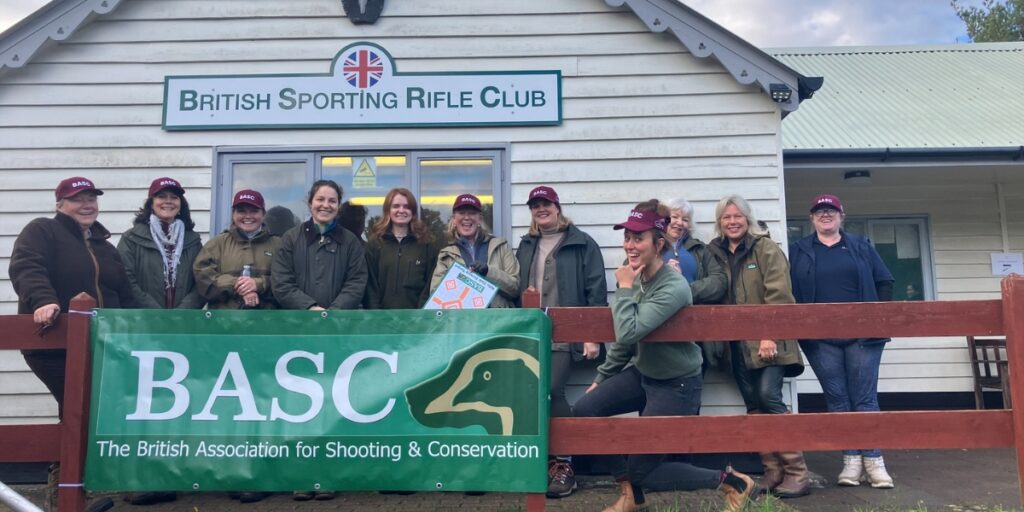
BASC’s Chelsea Jones reports on a thoroughly enjoyable BASC Women in Shooting Rifle Day at Bisley Shooting Ground in Surrey.

In honour of International Women’s Day, we share Georgina Roberts’ story and vision to help increase female participation in shooting sports.